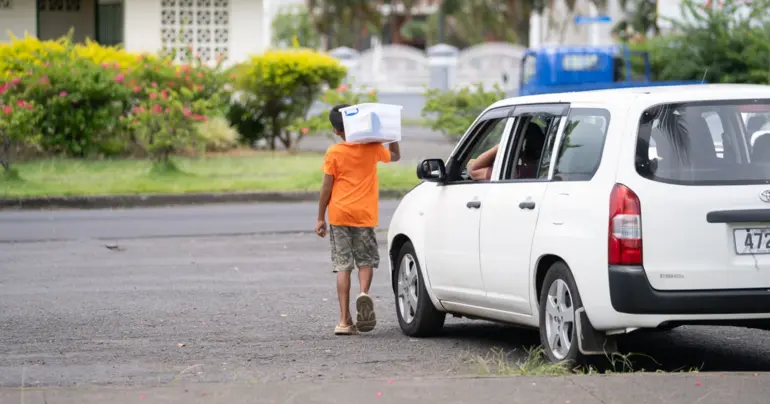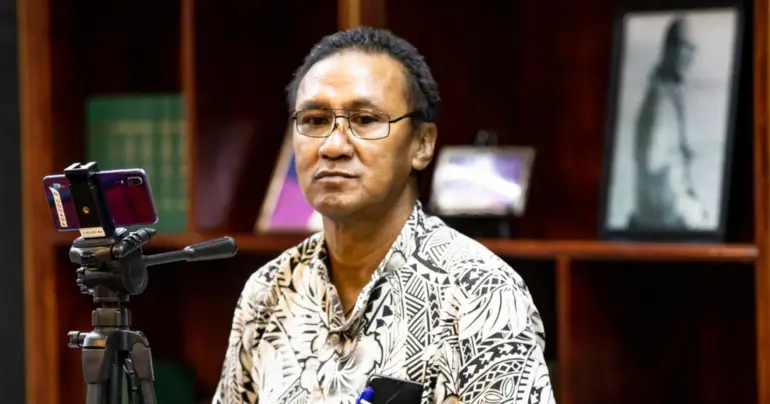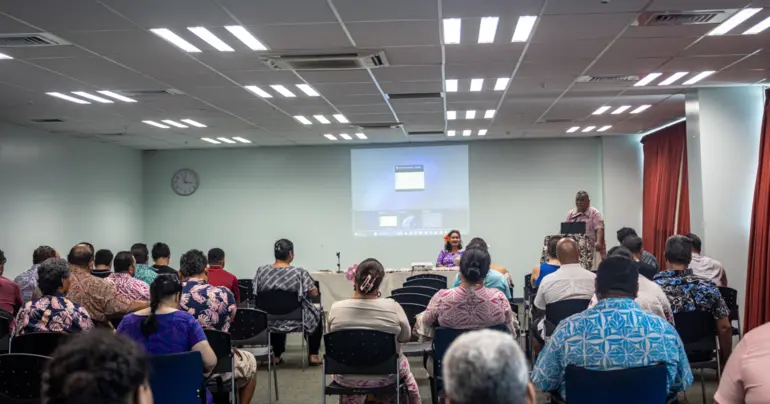Climate Change Centre building capacity
 By Marc Membrere
•
22 October 2020, 6:00PM
By Marc Membrere
•
22 October 2020, 6:00PM
The Pacific Climate Change Centre in Apia is using new and innovative technologies to build capacity in climate science in the region since its opening in September last year.
A virtual regional training on climate change, which focused on climate change and future climate projections and was hosted by the centre last month, saw twice as many participants when compared to being held in person.
The Secretariat of the Pacific Environment Programme (S.P.R.E.P.) has advised that the next training hosted by the centre focuses on a project that has been facilitated in partnership with the Government of Samoa and the Japan International Cooperation Agency (J.I.C.A.).
The project is called the “Project for the Capacity Building on Climate Resilience in the Pacific at the Pacific Climate Change Centre.”
The SPREP Climate Change Resilience Director, Tagaloa Cooper-Halo, said the project continues to be affected by the COVID-19 global pandemic but that will not impede them and they strive to continue to be innovative.
“This project has also been affected by COVID-19, but we explored a new delivery format. In April, we planned to organise a face-to-face training program, however, we had to cancel it,” she said in a statement.
“Even with international borders closed, S.P.R.E.P. and its partners with strong support from countries and territories, have gained experiences and increased ability to execute complex science training virtually, and are still trying to be more innovative on how we deliver our activities to your countries.”
The climate science training, which was run at the centre in Apia from 16-29 September, would have helped participants deepen their understanding of climate science, including past and current observed climate change and future climate projections.
The S.P.R.E.P. said in a statement that this strengthens the evidence for adaptation planning and implementation of responses in prioritised sectors such as disaster risk reduction, ecosystem, water, health, tourism, transport and agriculture.
The training consisted of online self-paced learning, three virtual sessions and one virtual group work session and was delivered in partnership with the University of Newcastle, Australia.
There were approximately 40 participants from Cook Islands, Federated States of Micronesia, Fiji, Kiribati, Nauru, New Caledonia, Niue, Palau, Papua New Guinea, Samoa, Tokelau, Tonga, Tuvalu who successfully completed the training.
A participant from Vanuatu, John Ruben, said the projections used different scenarios that helped him prepare his climate awareness materials which will suit the end users.”
“Having the ability to interpret and incorporate the different projections into awareness and training material will help in making the materials more concerning to the end users,” he said.
The 2021-2022 training modules will include disaster risk reduction, ecosystem, water, health, tourism as well as access to climate finance.
Tagaloa further stated: “We believe that this subject, climate science, will enhance scientific understanding of climate change and help to find the way to translate science to practical actions to strengthen climate resilience in our Pacific.”
 By Marc Membrere
•
22 October 2020, 6:00PM
By Marc Membrere
•
22 October 2020, 6:00PM











